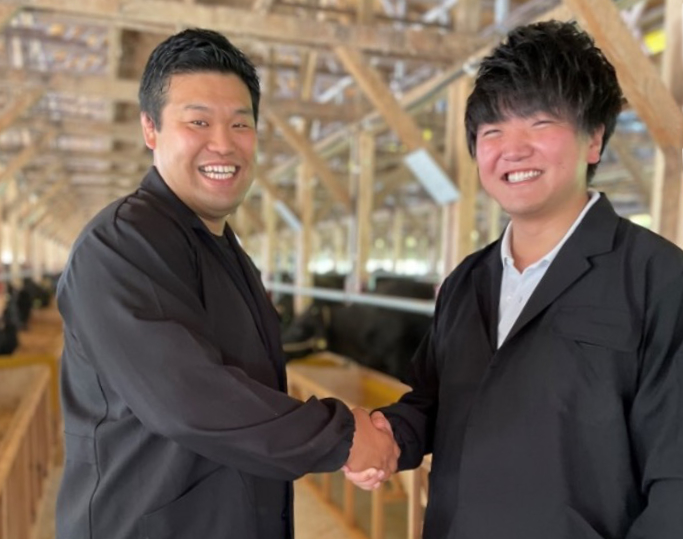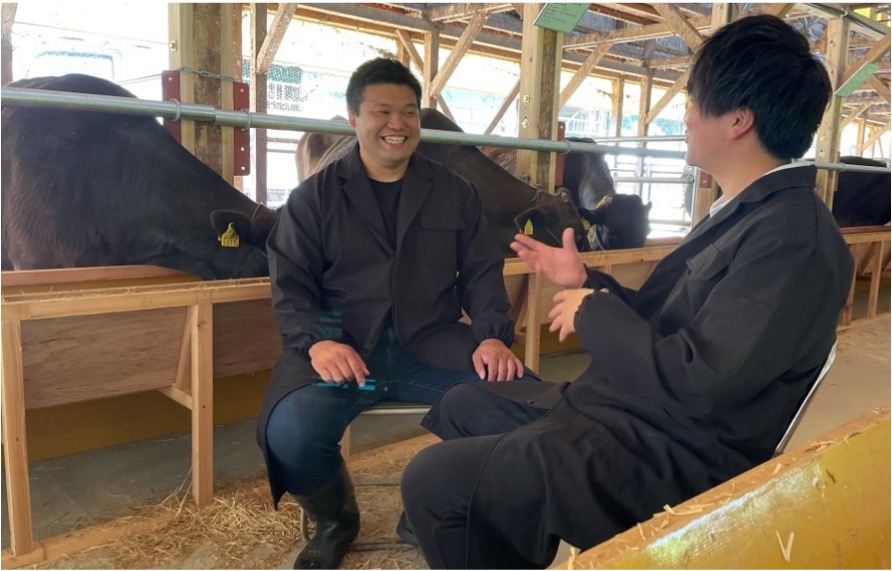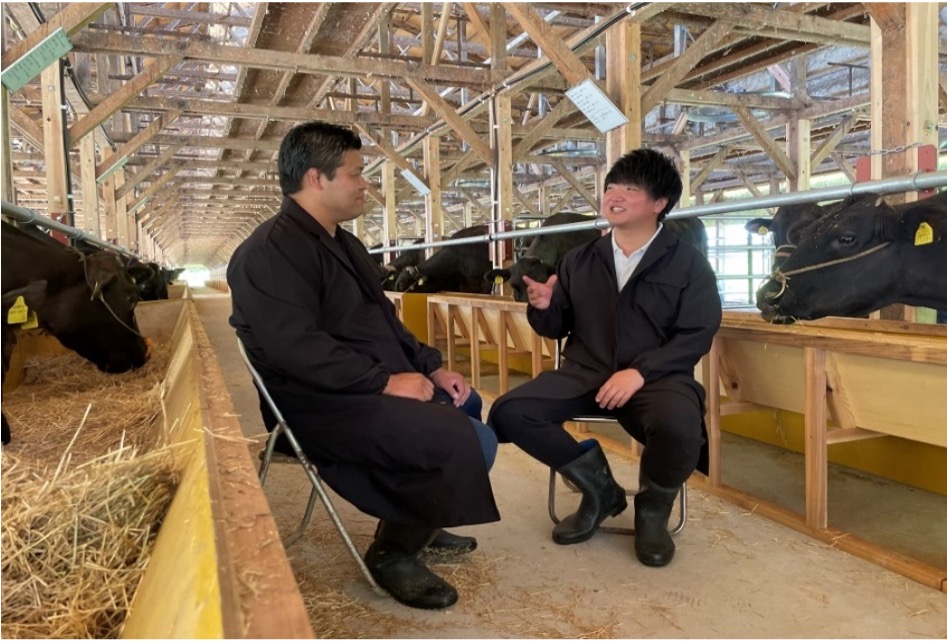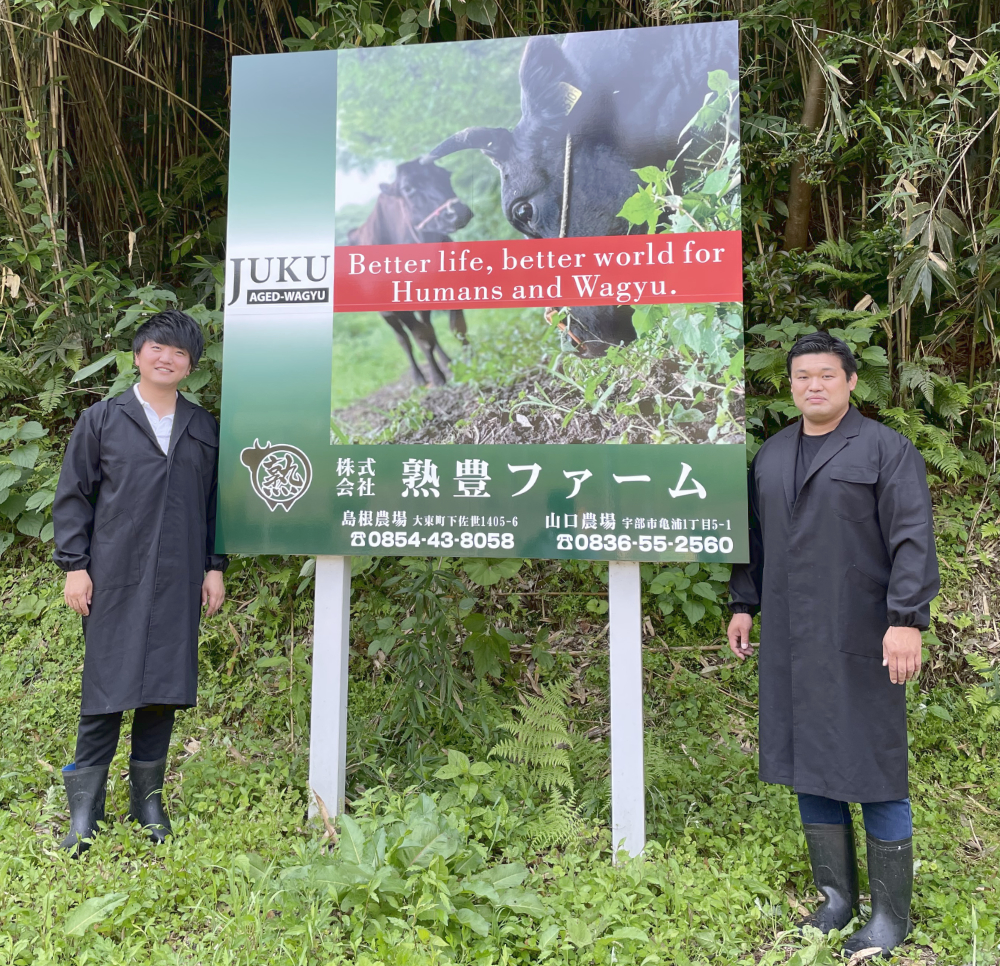
- Left:Ishitobi (CEO of Jukuhou farm)
- Right:Onishi (Executive director of Ginkakuji Onishi)
Interview ~JUKU Birth secret story~
Jukuhou farm Co.,Ltd.(CEO Shuhei Ishitobi)×Ginkakuji Onishi Co., Ltd.(Executive director Onishi)

| Onishi | Wagyu is well known for heifer and castrated. Why did you establish Jukuhou farm and expert keisan-gyu fattening? |
|---|---|
| Ishitobi | When I went to cattle auction in Shimane, there were several keisan-gyu on the market as well and I tasted the meat. I remember the meat was not marbled but tasted meaty and very delicious. The cattle was raised by breeding farmer in thier spare time and so was not perfectly fattened, and I thought what if I commit to fattenning keisan-gyu and make really delicious one..? |
| Onishi | How did it go after you started? |
| Ishitobi | I could not produce cattle that had the same quality and carcass weight in average at first. |
| Onishi | Why is that? |
| Ishitobi | Keisan-gyu that at Jukuhou farm is from different farmers and they finished giving the birth, which means they have been raised under different environmnet since they were young. The breeding management including feed is totally different depending on each farmers and so it was very difficult to consolidate and fatten them with the same method. |
| Onishi | We also select more than 10,000 carcass every year but never seen averaged and balanced keisan-gyu until I ment Jukuhou farm. |
| Onishi | How did you manage producing the well balanced cattle? |
| Ishitobi | In order to withdraw the capacity of mother wagyu that has been givine birth for several times, instead of reducing and control vitamin, we feed vitamin and mineral and change fattening management on individual cattle nature. |

| Ishitobi | You only specialized heifer and castrated at your company so far and why did you start dealing with keisan-gyu? |
|---|---|
| Onishi | Generally keisan-gyu is considered valuable overseas, however in Japan it’s valued low and treated as abondoned wagyu. As we export Japanese wagyu 19 countries, was surprised how people treat keisan-gyu differently. I strongly believe it’s important to take care of keisan-gyu and this will be necessary for future Japanese agriculture industry. I also recognized the taste difference in keisan-gyu from other young wagyu cattle. As for foreign food culture, I was always interested in exporting Japanese wagyu keisan-gyu but haven’t met farmers who produce consistent keisan-gyu and so was almost giving up until I met Jukuhou farm. First time I saw carcass from Jukuhou farm, I was very surprised because the grade and weight were in balanced and I decided to purchase the carcass immediately. |
| Ishitobi | We heard that you only purchase heifer cow so I was also surprised. It was even more astonishing to hear that you offered me the export right after that. |
| Onishi | I still remember that I was very pleased to meet farmer for the first time who is specialized and commited to keisan-gyu and are proud of themselves for that, and show off the keisn-gyu how delicious and wonderful it is. Jukuhou farm also told us the importance and social significance of sustainability and animal welfare that keisan-gyu has, which I was not even aware of. This gave me more confidence of what I’ve been doing is right. I hope we can continue collaborating together for next generation agriculture industry. |
| Onishi | Let’s continue to work on the exciting projects! |

